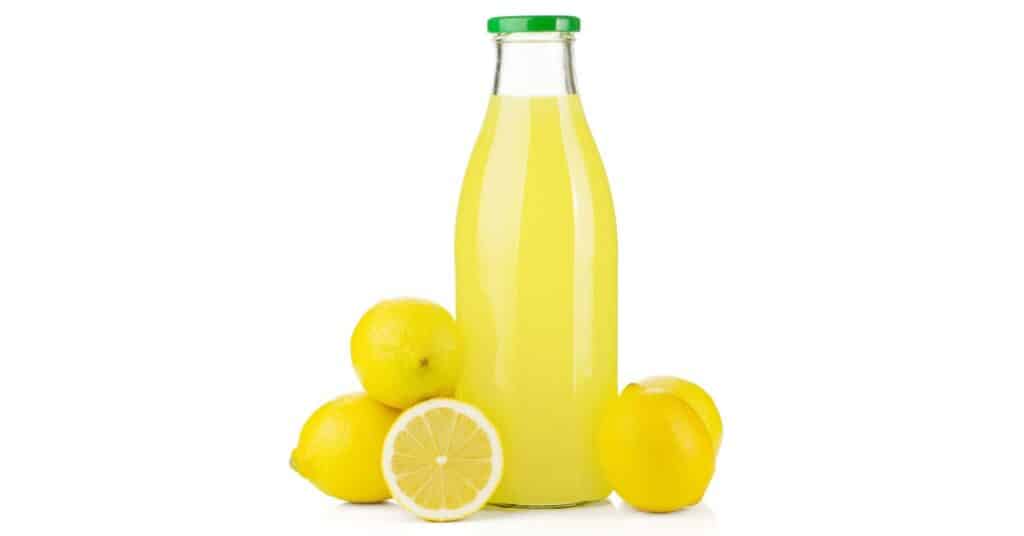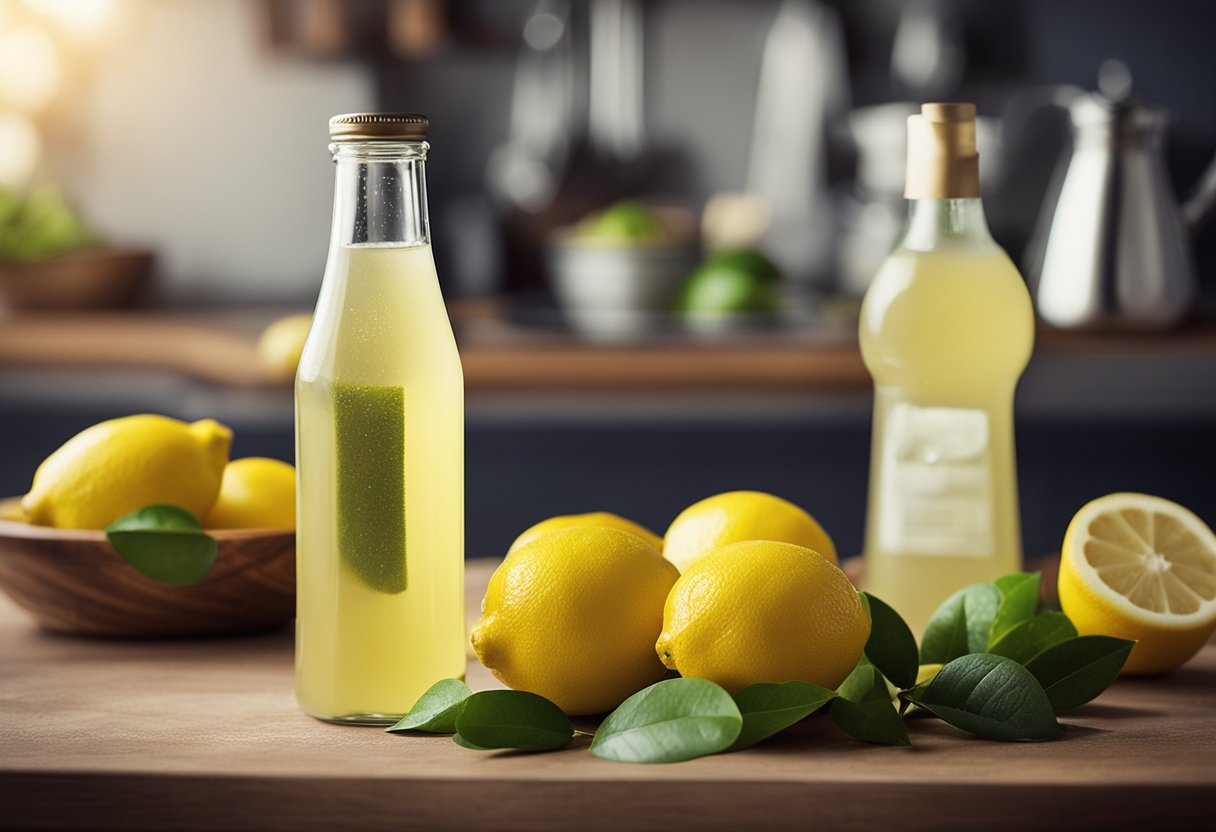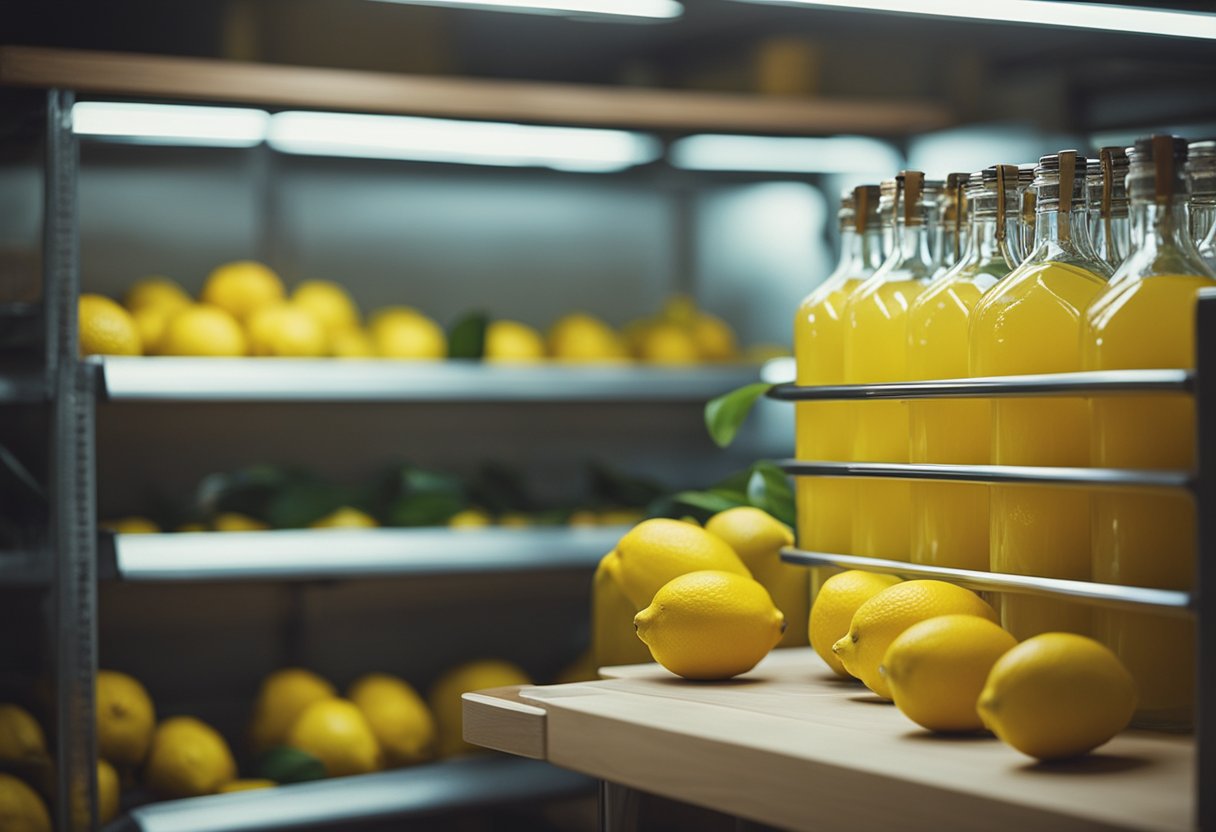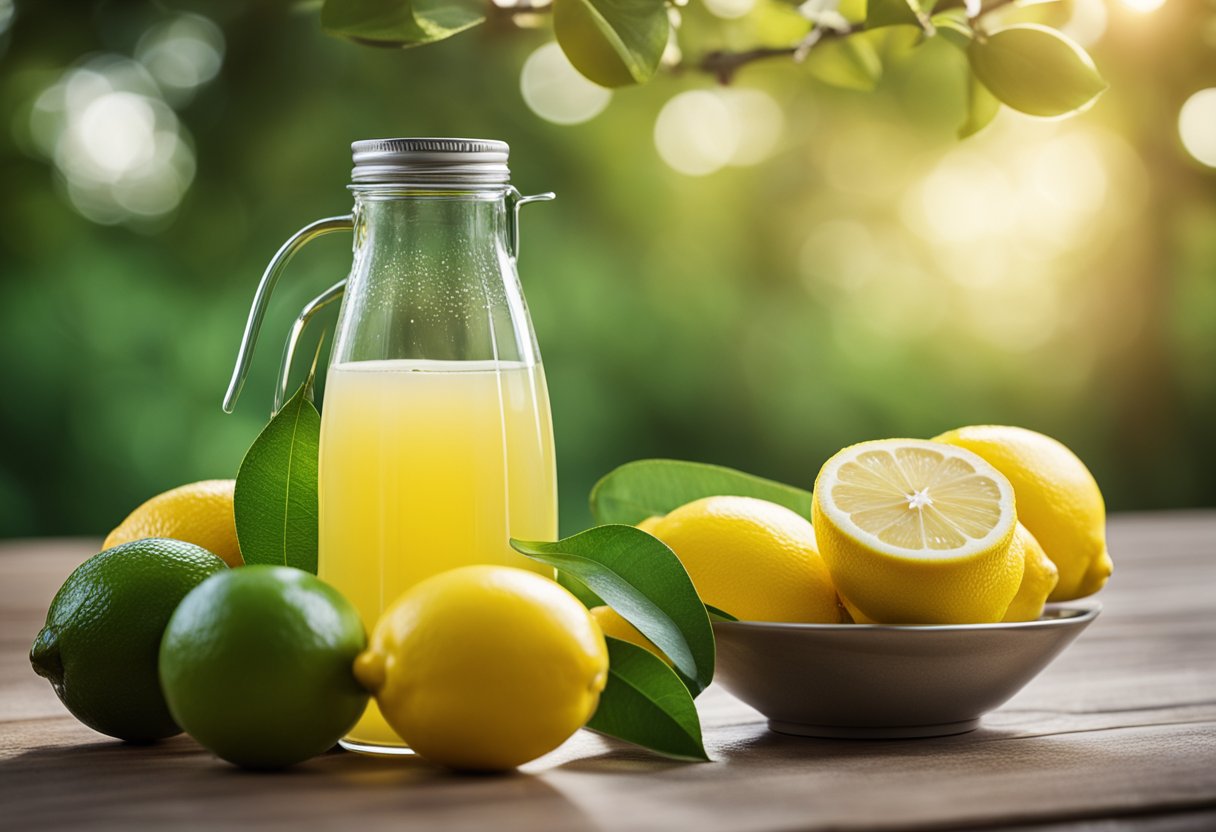When you’re looking to add a zesty twist to your dishes or beverages, you might reach for a bottle of lemon juice or opt to squeeze fresh lemons. Each method offers its own advantages and differences that impact not just flavor, but convenience and shelf life as well. Bottled lemon juice is a staple in many kitchens due to its long-lasting nature and consistent taste.

On the other hand, fresh lemon juice is renowned for its vibrant taste and the burst of freshness it brings. It’s packed with natural enzymes and can provide a unique zest that’s often associated with just-picked lemons. Extracting juice from fresh lemons also gives you the benefit of additional nutrients, including fresher essential oils found in the zest, which are often lost in the bottling process.
Composition and Nutritional Value
When considering bottled lemon juice and fresh lemon juice, it’s important to examine their main components and nutritional differences to understand what you’re consuming.
Main Components
Bottled lemon juice:
- Citric acid: Often contains a higher concentration compared to fresh juice for preservation.
- Preservatives: Such as sodium bisulfite and sodium benzoate to extend shelf life.
- Flavoring: Additional flavors may be added to enhance taste.
Fresh lemon juice:
- Citric acid: Naturally occurring in lower concentrations.
- Natural compounds: Contains volatile oils like limonene and flavonoids.
Nutritional Differences
| Nutrient | Bottled Lemon Juice | Fresh Lemon Juice |
|---|---|---|
| Vitamin C | Lower concentration | Higher presence |
| Potassium | May be reduced | Naturally occurring in modest amounts |
| Folate | Can be diminished | Available in natural form |
| Phytochemicals | Less variety | Rich in antioxidants |
You should be aware that the nutritional content of bottled lemon juice might be different due to processing and the addition of preservatives. On the other hand, fresh lemon juice typically provides you with more vitamins and antioxidants, as it’s less processed. However, the exact nutritional content can vary depending on storage conditions and the natural variability of the lemons themselves.
Taste and Culinary Use

When choosing between bottled lemon juice and fresh lemons, your palate and the intended use in recipes are pivotal considerations.
Flavor Profile
Bottled lemon juice often has a consistent flavor, which can be described as uniform and slightly tart. Although it lacks the volatile oils present in fresh lemon zest and juice, which provide a vivid and zesty taste, it’s beneficial for situations where you seek reliable sourness without the nuanced notes of fresh lemons.
Fresh lemons, on the other hand, offer a complex flavor profile with bright and floral notes due to the presence of natural oils in the peel and fresh acids in the juice.
Uses in Recipes
- Salad Dressings and Marinades: Fresh lemon zest and juice are preferred for their ability to impart subtle floral notes.
- Baked Goods: Bottled juice can be used in recipes needing a consistent sourness and when the fresh aroma is not as critical.
- Drinks and Cocktails: Fresh lemons are typically favored for their vibrant flavor and aromatic presence.
Shelf Life and Storage
When selecting between bottled lemon juice and fresh lemons, it’s important to consider how long each will last and the best ways to store them.

Preservation Methods
Bottled Lemon Juice: Manufacturers typically use preservatives such as sodium benzoate and sulfur dioxide to extend the shelf life of bottled lemon juice.
Fresh Lemons: To preserve fresh lemons, keep them in a cool and dry place away from direct sunlight. If refrigerated, place lemons in a plastic bag or the crisper drawer to retain moisture and prevent the absorption of odors from other foods.
Shelf Life Comparison
- Bottled Lemon Juice:
- Unopened: Can last up to 18 months when stored in a cool, dry pantry.
- Opened: Once opened, keep refrigerated and use within 6 months for best quality.
- Fresh Lemons:
- Counter: Can stay fresh for about 1 week when kept at room temperature.
- Refrigerated: Can last 3 to 4 weeks in the refrigerator.
Health and Safety Considerations
When considering bottled lemon juice and fresh lemon juice, it’s important to be aware of acid levels and food safety practices.
Acid Levels
Bottled Lemon Juice: Typically contains preservatives that maintain a consistent acid level.
Fresh Lemon Juice: Acid levels can vary depending on the lemon’s ripeness and variety.
Food Safety
Bottled Lemon Juice:
- Has a longer shelf life due to pasteurization.
- Should be stored according to the manufacturer’s instructions.
Fresh Lemon Juice:
- Must be refrigerated and used within a few days to prevent bacterial growth.
- Always wash lemons before squeezing to reduce the risk of transferring contaminants to the juice.
Frequently Asked Questions

When navigating the choice between bottled lemon juice and fresh lemon juice in your cooking, you’ll find some practical tips below answering your common queries.
How do I substitute bottled lemon juice for fresh lemon juice in recipes?
To substitute bottled for fresh lemon juice, use the same amount that your recipe requires for fresh juice. However, factor in that bottled juice is often more concentrated and adjust to taste.
What is the equivalent measure of fresh lemon juice compared to bottled lemon juice?
One lemon typically yields about 2 to 3 tablespoons of juice, so for recipes using bottled lemon juice, use that as a guide for conversion.
Can bottled lemon juice be used in place of fresh for cooking and health remedies like liver health or weight loss?
Bottled lemon juice can be used in cooking as a substitute for fresh lemon juice, but it may be less effective in health remedies due to processing and potential preservatives.
What are the differences in taste and quality between bottled lemon juice and fresh lemon juice?
Bottled lemon juice often lacks the freshness and subtle flavors of just-squeezed juice and may contain preservatives that alter its taste profile.
Are there any cooking applications where bottled lemon juice should not replace fresh, such as in making jam or lemon water?
For making jams or dishes where the zest is required, fresh lemon juice is preferable for its natural pectin content and vibrant flavor. Similarly, lemon water made with fresh juice offers a fresher taste.
Which brands of bottled lemon juice provide the closest flavor to fresh lemon juice?
Brands like Italian Volcano and Santa Cruz Organic often have a flavor closer to fresh lemon juice, as they are less processed and contain fewer additives.
